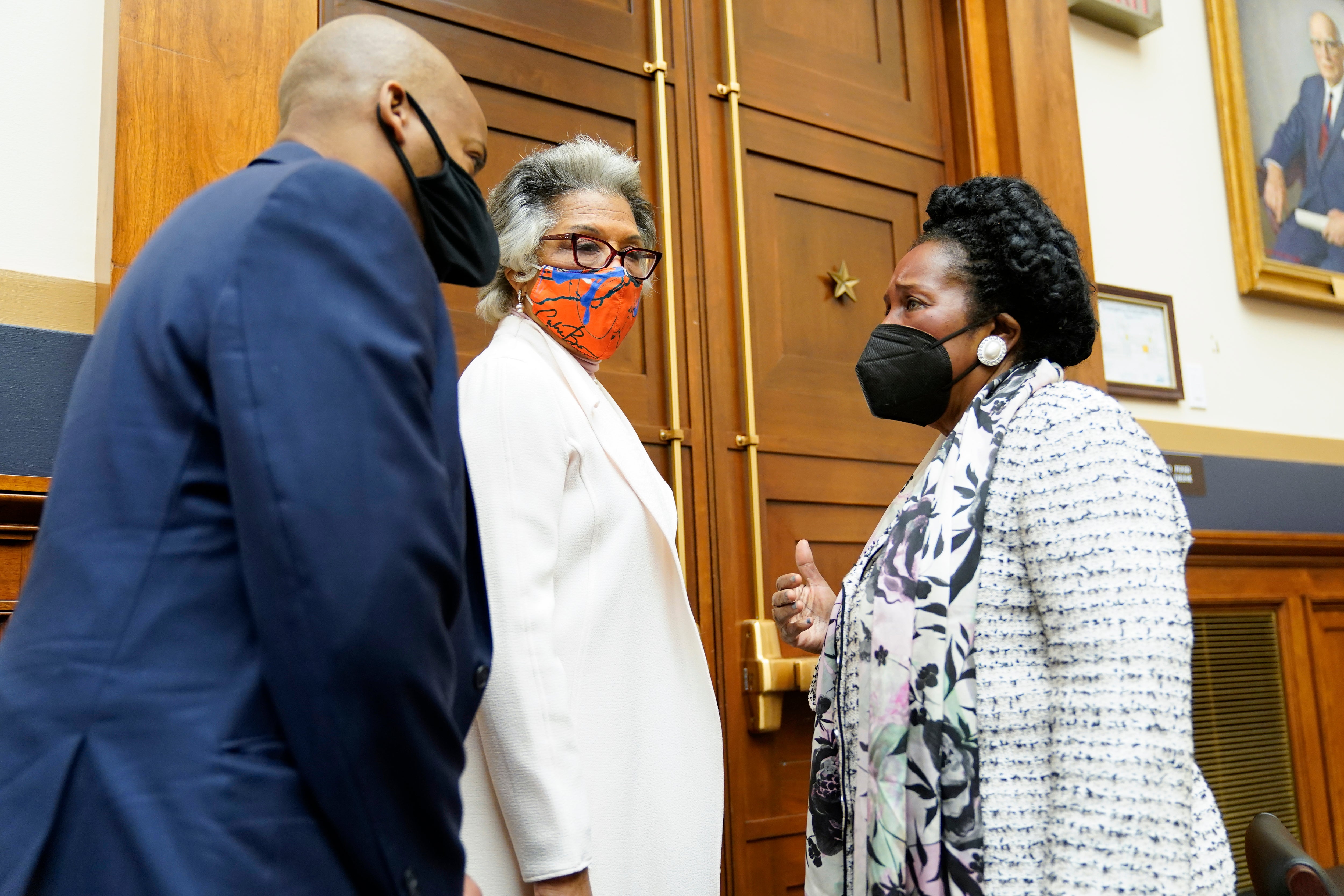House panel poised to advance bill on slavery reparations
A House panel is expected to advance a decadeslong effort to pay reparations to the descendants of slaves

A House panel is expected to advance a decadeslong effort to pay reparations to the descendants of slaves with a vote Wednesday on legislation that would create a commission to study the issue.
It's the first time the House Judiciary Committee has acted on the legislation. Still, prospects for final passage remain poor in such a closely divided Congress
The legislation would establish a 13-member commission to examine slavery and discrimination in the United States from 1619 to the present. The commission would then recommend ways to educate Americans about its findings and appropriate remedies, including how the government would offer a formal apology and what form of compensation should be awarded.
The bill, commonly referred to as H.R. 40, was first introduced by Rep. John Conyers D-Mich., in 1989. The 40 refers to the failed government effort to provide 40 acres (16 hectares) of land to newly freed slaves as the Civil War drew to a close.
The momentum supporters have been able to generate for the bill this Congress follows the biggest reckoning on racism in a generation in the wake of George Floyd’s death while in police custody.
“By passing H.R. 40, Congress can also start a movement toward the national reckoning we need to bridge racial divides," said Rep. Sheila Jackson Lee, D-Texas, and the bill's sponsor this Congress.
Still, the House bill has no Republicans among its 176 co-sponsors and would need 60 votes in the evenly divided 50-50 Senate to overcome a filibuster.
Last month, the Chicago suburb of Evanston became the first U.S. city to make reparations available to its Black residents for past discrimination and the lingering effects of slavery. The money will come from the sale of recreational marijuana and qualifying households would receive $25,000 for home repairs, down payments on property, and interest or late penalties on property in the city.
Other communities and organizations considering reparations range from the state of California to cities like Amherst, Massachusetts, Providence, Rhode Island, Asheville, North Carolina, and Iowa City, Iowa; religious denominations like the Episcopal Church; and prominent colleges like Georgetown University in Washington
Polling has found long-standing resistance in the U.S. to reparations to descendants of slaves, divided along racial lines. Only 29% of Americans voiced support for paying cash reparations, according to an Associated Press-NORC Center for Public Affairs Research poll taken in the fall of 2019. Most Black Americans favored reparations, 74%, compared with 15% of white Americans.
President Joe Biden captured the Democratic presidential nomination and ultimately the White House with the strong support of Black voters. The White House has said he supports the idea of studying reparations for the descendants of slaves. But it’s unclear how aggressively he would push for passage of the bill amid other pressing priorities.
Members of the Congressional Black Caucus brought up the bill during a meeting with Biden at the White House on Tuesday.
“We're very comfortable with where President Biden is on H.R. 40," Jackson Lee told reporters after the meeting.
Kamm Howard, the co-chair of the National Coalition of Blacks for Reparations in America, called the commission long overdue in an earlier committee hearing and said that “many years have been wasted, many lives lost,” since Conyers first introduced the measure.
“The goal here is restoration. Where would we be as a people if it were not for 246 years of stolen labor and accompanying horrors, if not for the multiple periods of multibillion-dollar plunder post-enslavement?” Howard said. “We must be made whole.”
Larry Elder, a Black conservative talk radio host, countered in the same hearing that African Americans have made tremendous progress economically and socially, noting that Barack Obama was elected twice to the presidency. He stated that racism has never been less of a significant problem in America than it is now.